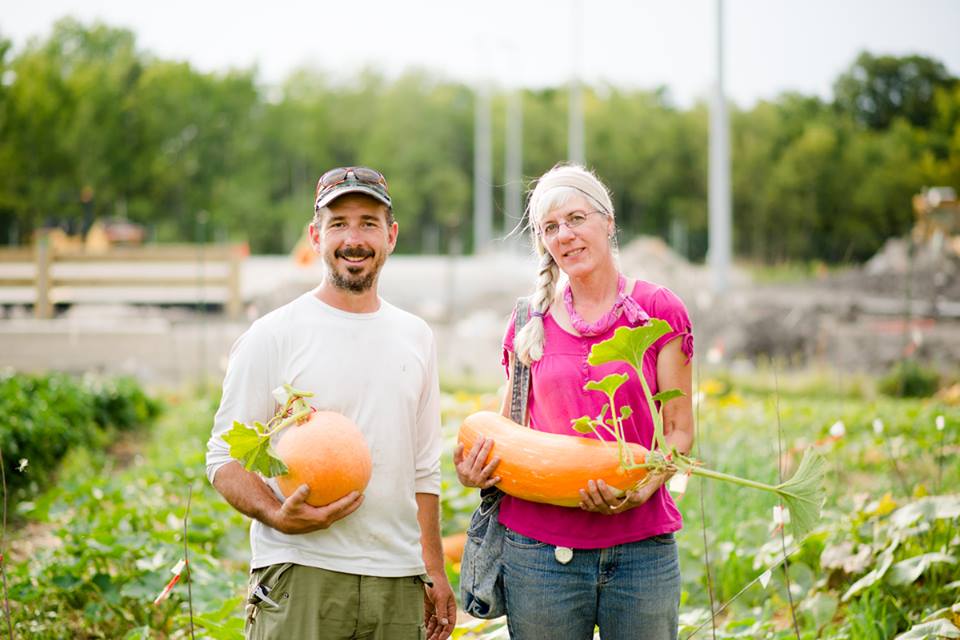Back to August 2014 Newsletter
Bauta Initiative Profile: Red River Regional Seed Library

The first branch of The Red River Regional Seed Library is located at the Mennonite Heritage Centre Archives and Gallery, which houses the collection of seeds. According to Chartrand, the collection focuses on “corn, beans and squash and preserving varieties that are not available commercially.” Chartrand says the library is particularly committed to maintaining a collection of high quality seeds with high germination rates, but also stresses that they accept all seeds that are donated to them, regardless of the quantity or quality. Preserving heirloom seeds grown in the Winnipeg bioregion is obviously important to the mandate of this library too.
The Red River Regional Seed Library has already established a network of eight growers willing to work with them to bulk up seeds, each of whom is growing at least four different varieties of seeds. One of these growers, CMU Farms, is one of the main growers for the project, and is also the site of a number of training and educational events put on by the library.
When we discussed ways to preserve the viability of seeds, Caroline told me the story of the Gete Okosomin winter squash, which was found in sealed clay balls at an archaeological dig near Illinois and Wisconsin. These seeds were dated to be between 850-1000 years old. Despite their age, they were still able to germinate, demonstrating how long seeds can live when they are stored by those who have the knowledge and understanding of preservation techniques. But the story doesn’t end there. As it turns out, Gete Okosomin is a variety that has been continuously grown and maintained by the Miami Nation in the United States, who have been using it for generations.
Today, we use continue to preserve seeds by drying them. Our favourite method at Seeds of Diversity is to do this using silica gel, and Caroline has found this method works very well for her too. She shared the results of some germination tests she had done in February 2014, on beans she had saved in mason jars since 1997. These beans, which were dried with silica gel and stored at room temperature for seventeen years, still had germination rates of over 95%! Just to compare her results, Caroline also tested seeds of the same bean variety from 2008, which were not stored using silica gel or dried in any special way. The germination rates for these seeds were between 60-70%.
This difference highlights the capacity that seeds have for long-term storage and underlines the importance of using the best preservation methods possible. Caroline clearly understands this as well, and it’s no surprise that she is interested not only in these new ways of storing seeds, but also in uncovering and exploring ways of preserving seeds that had been practiced for thousands of years. Preserving traditional knowledge of seeds is perhaps as important as preserving the seeds themselves, and without a doubt, these two go hand in hand.
Picture above: Kenton Lobe and Caroline Chartrand holding Arikara and Gete Okosomin squash whose seeds were saved at the CMU Farm in 2013. Photo taken from CMU farm's website.
Not yet a member?
An annual membership to Seeds of Diversity gives you access to our seed exchange, seed grow-out programs, and our online news.

We depend on donations to do our work.

Thank you for your support!
